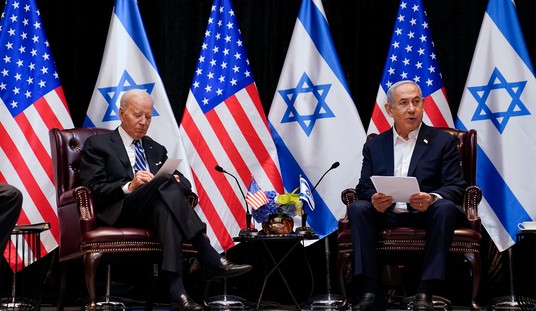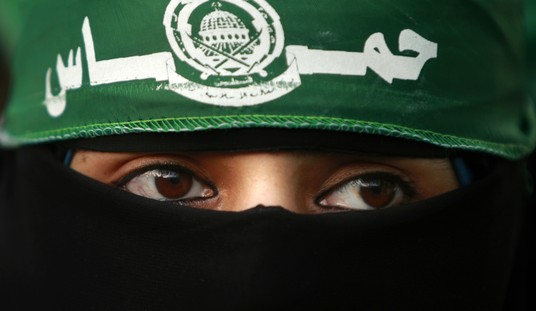President Obama summoned a posse of Congress members and administration officials to meet him in Saudi Arabia today to offer condolences on the death of King Abdullah and meet with King Salman.
Some of those lawmakers were pulled away from key hearings to fly to Riyadh, including Rep. Eliot Engel (D-N.Y.), the top Dem on the House Foreign Affairs Committee and a critic of soft Iran policy, who missed a hearing on the status of Iran negotiations.
Sen. John McCain (R-Ariz.) missed an Armed Services Committee hearing on national security threats, at which one retired general warned that al-Qaeda has grown fourfold over the past five years. Sen. Mark Warner (D-Va.), a co-sponsor of the Menendez-Kirk sanctions bill, was pulled away from a Senate Banking Committee hearing on the matter today.
Other lawmakers brought to the kingdom were Nancy Pelosi (D-Calif.), Ami Bera (D-Calif.), and Joe Crowley (D-N.Y.).
Deputy National Security Advisor Ben Rhodes told reporters today that upon the news of King Abdullah’s death last Thursday, “we went to work to put together a delegation that represented people who had been invested in the Saudi relationship for a long time and had known King Abdullah well.”
“We wanted to make sure that we had bipartisan representation from members of Congress, given the deep congressional interest and relationship with Saudi Arabia, and we also wanted to make sure we had bipartisan representation across different administrations,” Rhodes said. “And, again, we were able to have a number of former administration officials, including Republican administration officials, join us and then people who worked closely on the Saudi relationship. So I think if you look across it, it meets the threshold of being bipartisan, high-level, and individuals who have worked very closely with Saudi Arabia over many years.”
In addition to Rhodes and press secretary Josh Earnest, the current administration officials included in the delegation were Ambassador Joseph W. Westphal, Secretary of State John Kerry, Senior Advisor Valerie Jarrett, National Security Advisor Susan Rice, White House counselor John Podesta, Assistant to the President and Deputy Chief of Staff for Operations Anita Breckenridge, Assistant to the President and Chief of Staff to the First Lady Tina Tchen, Assistant to the President and Director of Communications Jennifer Palmieri, Assistant to the President for Homeland Security and Counterterrorism Lisa Monaco, Assistant to the President and Director of Scheduling and Advance Chase Cushman, United States Chief of Protocol Peter A. Selfridge, CIA Director John Brennan, Deputy Assistant to the President and Deputy Chief of Staff to the First Lady Melissa Winter, Deputy Director of the Office of Management and Budget Brian Deese, and U.S. Central Command leader General Lloyd J. Austin III.
Treasury Secretary Jack Lew was sent to Poland for the 70th anniversary of the liberation of Auschwitz, which was attended by about a dozen heads of state including French President Francois Hollande.
Past administration officials on the Saudi Arabia delegation included former Secretary of State James Baker, former Secretary of State Condoleezza Rice, former National Security Advisor Brent Scowcroft, former National Security Advisor Sandy Berger, former National Security Advisor Stephen Hadley, and former Assistant to the President for Counterterrorism and Homeland Security Fran Townsend.
King Salman greeted the Obamas at the airport with a band playing “The Star-Spangled Banner.”
The delegation feasted upon appetizers, soup, seafood, lamb, ravioli, veal steaks, stuffed chicken breasts, and five dessert choices at Erga Palace.
Rhodes was asked what Obama would say to the new king about human rights after giving India a lecture on equality and tolerance before flying out of New Delhi.
“What we would say to all of our partners around the world is that we fundamentally believe in a set of values to include equality for women and religious freedom and tolerance. Obviously different countries are in very different places in terms of their embrace of those values. I think what the president would say is that it’s not simply a matter of the United States telling other countries what they should do; it’s frankly a fact that societies are more successful when they respect those types of universal values. And that’s the message he delivered in India,” Rhodes said.
“And then, ultimately, stability in the long run is going to depend on a process of reform in different societies that move in the direction of those values. Again, places don’t change overnight but I think with Saudi Arabia what we’ve said we’d support is a reform process that does provide for greater respect for those types of universal values. King Abdullah took some initial steps in that direction, in terms of more political participation for some people within Saudi Arabia, more access to education for women. But, clearly, much more work needs to be done to realize the types of values that the president was talking about in India, and that will be a consistent part of our dialogue with all countries around the world.”
Obama makes flying visit to Saudi to shore up ties with close Gulf ally and “pay respects”. http://t.co/MaxA1wUZFq pic.twitter.com/SUvJTPaay4
— AJE News (@AJENews) January 27, 2015








Join the conversation as a VIP Member